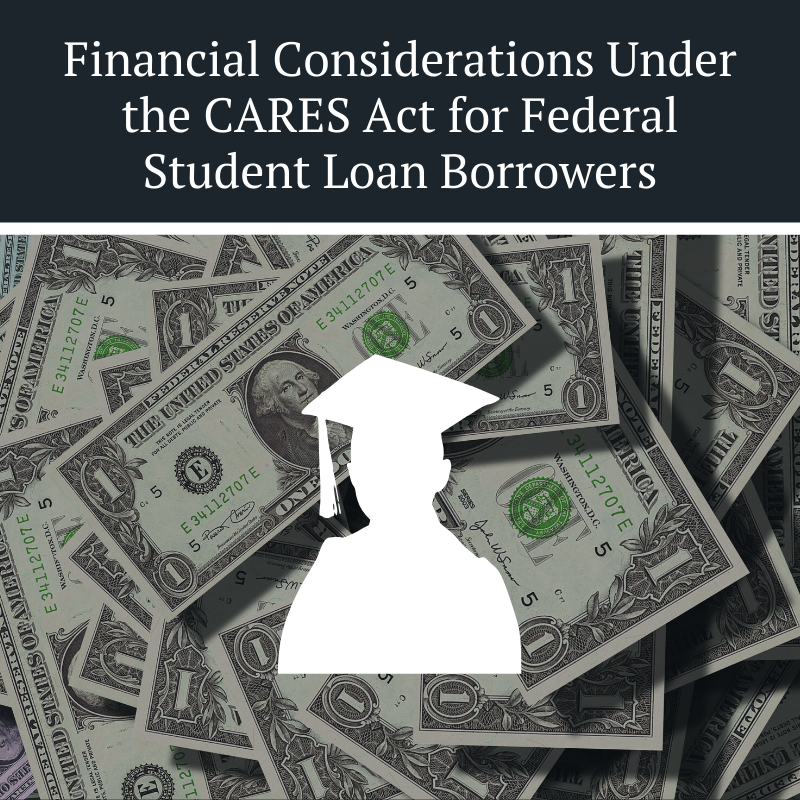By: Sarah Collier, J.D.
Due to the CARES Act, qualifying federal student loans are being placed in an administrative forbearance with a 0% interest rate effective March 13, 2020, through September 30th, 2020. On August 8, 2020, President Trump directed the Secretary of Education to extend the student loan relief until December 31, 2020. This means that during this time period, there are no requirements to continue paying on the loan, and no interest will accumulate during this time frame. Additionally, all automatic debit payments are suspended.
A borrower can also request that this administrative forbearance be removed, thereby resuming required payments and automatic debt payments.
Federal Loans that qualify for the administrative forbearance at 0% interest include:
- Defaulted and nondefaulted Direct Loans
- Defaulted and nondefaulted FFEL Programs
- Federal Perkins Loans
If it is financially possible to continue paying, do so (even if it is a small amount). If you find yourself able to make any kind of payments, you may want to make manual payments on your loan without removing the administrative forbearance. By doing so, you will be taking advantage of the 0% interest as well as creating a more flexible payment plan. Payments made during this period will first be applied to the accrued interest prior to March 13th, 2020. Although this might not directly touch loan principal, making payments effectively lowers your compounded interest post forbearance.
Some individuals may be on a Public Service Loan Forgiveness Plan (PSLF) or an Income-Driven Repayment (IDR) Plan. If you have a Direct Loan and were placed on a qualifying repayment plan prior to the suspension while working full-time for a qualifying employer during this time frame, you will receive credit toward PSLF for the period of suspension as though on-time monthly payments were made. If you are currently on an IDR plan, the suspended payments will count toward IDR forgiveness.
The administrative forbearance and 0% interest only applies to certain qualifying federal loans and each Loan Servicer may be implementing the forbearance and 0% interest differently. Therefore, if you have not received any notification verifying how your account is being effected or you have questions, contact them immediately. A missed payment could negatively affect your financial health. In addition, private student loans may be offering financial payment options to their borrowers. Be on the lookout for communication from these loan servicers either by mail, email or messages through the account portal. If you have further questions or concerns, you can contact your servicer directly.
Whether you have a qualifying Federal Loan or not, additional financial options may be available to you. Before making a decision, be sure to discuss this with your financial advisor to determine which course of action is best for you based on your financial goals.
**Despite the rights provided under the CARES Act, there have been a few reported cases where accounts were placed on administrative forbearance but default payments were reported to the credit agencies. Therefore, you may want to check your credit score a few months after the administrative forbearance is put into place to ensure that accounts are not being inadvertently reported. Now through April 20, 2021 Annual Credit Report will be offering all U.S. consumers free weekly credit reports of the three major credit reporting agencies (Experian, TransUnion and Equifax) will offer all U.S. consumers free weekly credit reports. If any discrepancies are noted, you will want to dispute them
For more information from the U.S. Department of Education’s office of Federal Student Aid, check out the following links:
https://studentaid.gov/announcements-events/coronavirus
A list of the contact information for Federal Loan Processors can be found here: https://studentaid.gov/manage-loans/repayment/servicers


